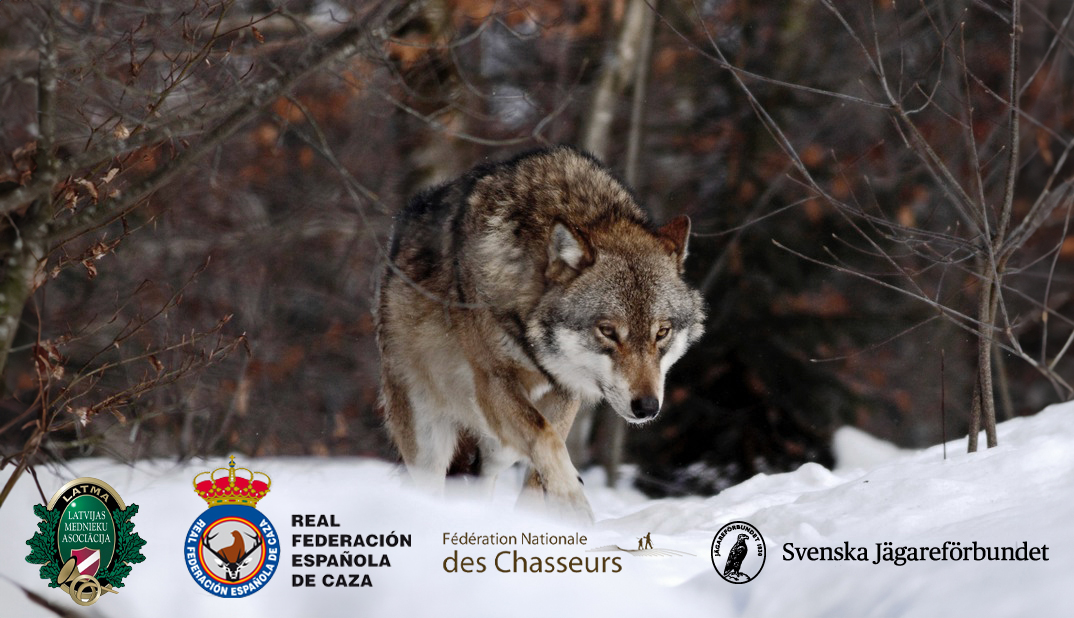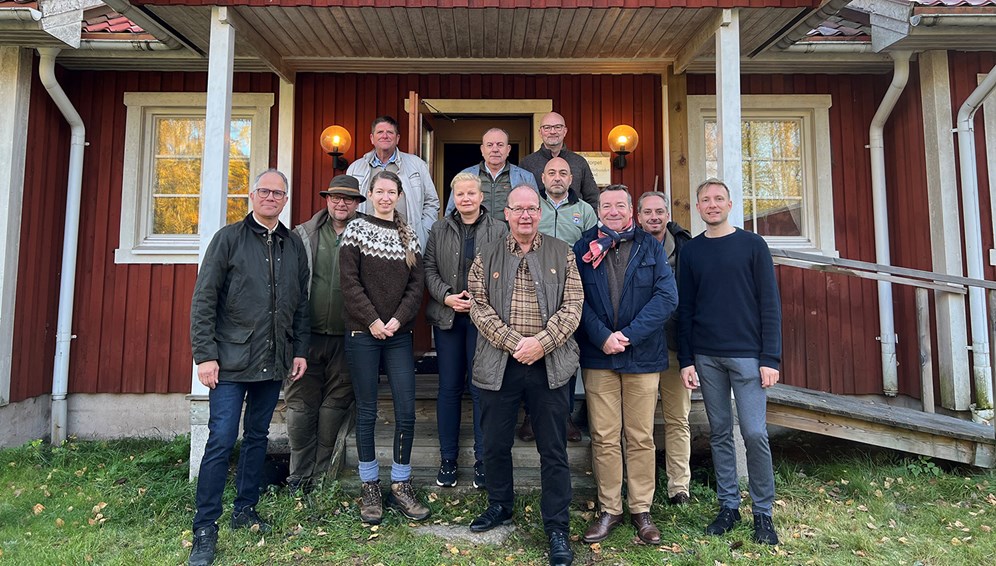
19 Oct 2023 The pressure intensifies on the European Commission
New statement signed by the national hunting associations in Latvia, Spain, France, and Sweden
There is growing demand across the EU for change in the application of the EU Habitats Directive. The rapid expansion of the wolf – both in numbers and geographical extent – requires management of the populations. Many European countries are experiencing major problems that must be dealt with. We need urgent measures from the European Commission that enables a sustainable wolf management.
Hunters’ organisations from Latvia, Spain, France, and Sweden met in Värmland, Sweden, this week. Their main message is clear, and there is strong support from many others.
The wolf population is increasing rapidly across Europe. This can result in anxiety and damages plaguing parts of the human population, notably livestock farmers and hunters.
Although foreseen in the EU Habitats Directive, the Annexes have not been revised due to progress since it was adopted in 1992. However, nature has not remained static. Certain species that were threatened in 1992 are now doing well. The wolf is one of them.
The European Commission’s strict interpretation of the Habitats Directive has hindered the management of the wolf. Despite being needed, wolf management hunting remains rare in the Member States. Therefore, we welcome the clarity from the Commission President Ursula von der Leyen. In a statement, she called on the Member States to use existing derogations and opened for a move of the wolf from strictly protected to subject to management.
Four concrete measures are required, which would give each Member State the possibility to regulate and manage the wolf population, and the European Commission must act as a matter of urgency. We need to have new measures in place already next year that facilitate the conservation and management of large carnivores.
Successful coexistence between carnivores and the rural population requires conditions that genuinely take social, economic, and cultural considerations into account. Where management frameworks work, coexistence is good between hunters and large carnivores. For this to become reality, each Member State must have the possibility to manage its large carnivore populations that have achieved favourable conservation status.

Swedish, Latvian, Spanish, and French hunting organisations met in Värmland to address the escalating wolf-related challenges in Europe. They jointly call upon national and international policy-makers to empower EU member states to manage wolves effectively.
The undersigned organisations urge the EU and national-decision makers to:
- Change the legal protection status of large carnivore populations with a favourable conservation status from Annex IV to Annex V in the EU Habitats Directive as a matter of urgency;
- Enable a large carnivore status assessment, where relevant, based on the population level as done under the IUCN assessment. This approach should consider the transboundary nature of these species while acknowledging the unique circumstances of isolated populations and certain subpopulations.
- Acknowledge the implications of the rapid increase of large carnivore populations, and use the latest scientific data when creating or updating policies;
- Allow flexible derogations in Article 16 of the EU Habitats Directive for large carnivore populations to take due account of economic, social and cultural requirements of local people most affected by large carnivores, as required by Article 2.3 of the directive.
Signed by:
Latvian Hunters’ Association – www.latma.lv
Swedish Association For Hunting – www.jagareforbundet.se
French National Hunters’ Federation – www.chasseurdefrance.com
Royal Spanish Hunting Federation – www.fecaza.com

